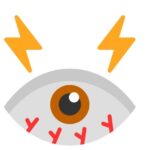Eye health is a crucial aspect of our overall well-being, influencing how we experience the world around us. Our eyes are not just organs of sight; they are gateways to our environment, enabling us to connect with people, enjoy nature, and engage in activities we love. Yet, despite their importance, eye health is often overlooked until problems arise.
The eyes are complex structures that require proper care and attention. They are susceptible to various conditions that can lead to vision impairment or even blindness if not addressed promptly. With the aging population and the increasing use of digital devices, the prevalence of eye-related issues has risen sharply. Conditions like myopia, dry eye syndrome, and age-related macular degeneration are becoming more common, making it vital for individuals to prioritize their eye health.
Moreover, many systemic health issues can manifest in the eyes, serving as early indicators of conditions such as diabetes, hypertension, and autoimmune diseases. Regular eye examinations are essential for not only maintaining vision but also for detecting these underlying health problems early on.
In a fast-paced world where visual demands are constantly increasing—whether from screens or environmental stressors—it is crucial to take proactive steps to protect our vision. This comprehensive guide will explore the importance of eye health, common eye conditions, preventive measures, and practical tips for maintaining healthy eyesight throughout your life. By understanding the significance of eye health and implementing simple practices, you can help ensure your eyes remain bright and healthy for years to come.
Importance of Eye Health
Good eye health is essential for several reasons:
1. Vision and Daily Life
Clear vision is fundamental to nearly every aspect of daily living. It impacts our ability to perform everyday tasks, such as reading, driving, cooking, and enjoying leisure activities. Good vision enhances our quality of life, allowing us to engage fully with family, friends, and our environment. For children, proper vision is crucial for learning and development, as it directly affects their academic performance and social interactions.
2. Early Detection of Systemic Health Issues
The eyes can provide valuable insights into our overall health. Many systemic diseases, such as diabetes, hypertension, and autoimmune disorders, can be detected through comprehensive eye examinations. For instance, diabetic retinopathy, a complication of diabetes, can lead to vision loss if not identified early. Eye exams can reveal changes in blood vessels and signs of other health issues before they manifest more seriously, enabling timely intervention.
3. Preventing Vision Loss
Many eye conditions, if caught early, can be effectively managed or treated. Regular eye check-ups allow for the monitoring of changes in vision and eye health. Conditions like glaucoma, cataracts, and macular degeneration can often be treated or managed when detected early, significantly reducing the risk of irreversible vision loss.
4. Impact on Mental Health
Vision impairment can lead to significant emotional and psychological challenges. Individuals with vision loss may experience feelings of isolation, depression, and anxiety, impacting their overall mental health. Maintaining good eye health not only supports physical well-being but also contributes to emotional stability and social engagement.
5. Workplace Productivity
Good vision is essential for productivity in the workplace. Many jobs require clear vision for tasks ranging from reading and writing to operating machinery. Vision problems can lead to decreased efficiency and increased safety risks. Regular eye care helps ensure that employees can perform their tasks effectively and safely.
6. Aging Population
As the global population ages, the incidence of age-related eye conditions is rising. Conditions like cataracts and age-related macular degeneration are more prevalent in older adults. By prioritizing eye health early on, individuals can help mitigate the effects of aging on their vision and maintain independence and quality of life as they age.
7. Quality of Life and Independence
Maintaining good eye health is directly linked to an individual’s independence and ability to perform daily activities. Poor vision can limit mobility, making it difficult to navigate safely and independently. By investing in eye health, individuals can enhance their quality of life and retain their autonomy.
The importance of eye health cannot be overstated. It plays a vital role in daily living, emotional well-being, and overall health. By understanding its significance and taking proactive steps to maintain and protect vision, individuals can enjoy a richer, more fulfilling life while reducing the risk of serious eye conditions. Regular eye exams and healthy lifestyle choices are essential components of preserving eyesight and enhancing quality of life.
Common Eye Conditions
1. Refractive Errors
- Myopia (Nearsightedness): Difficulty seeing distant objects clearly.
- Hyperopia (Farsightedness): Difficulty focusing on nearby objects.
- Astigmatism: Blurred vision due to an irregularly shaped cornea.
- Presbyopia: Age-related difficulty in focusing on close objects.
2. Cataracts
- A clouding of the eye’s lens, leading to blurred vision. Common in older adults, cataracts can be surgically treated.
3. Glaucoma
- A group of conditions that damage the optic nerve, often linked to high eye pressure. It can lead to vision loss if not treated.
4. Age-Related Macular Degeneration (AMD)
- A progressive disease that affects the central part of the retina, leading to vision loss in older adults.
5. Diabetic Retinopathy
- Damage to the retina caused by diabetes, potentially leading to blindness. Regular eye exams are crucial for early detection.
6. Dry Eye Syndrome
- A common condition where the eyes do not produce enough tears, causing discomfort and visual disturbances.
7. Conjunctivitis (Pink Eye)
- Inflammation of the conjunctiva, often caused by infections or allergies. It can be contagious and may require medical treatment.
Preventive Measures for Eye Health
1. Regular Eye Exams
- Comprehensive eye exams should be conducted every 1-2 years, or more frequently if you have existing eye conditions or risk factors.
2. Healthy Diet
- A diet rich in fruits, vegetables, and omega-3 fatty acids can support eye health. Nutrients such as vitamin C, E, lutein, and zeaxanthin are particularly beneficial.
3. Protective Eyewear
- Use sunglasses that block UV rays when outdoors. Safety glasses should be worn during activities that pose a risk of eye injury.
4. Limit Screen Time
- Follow the 20-20-20 rule: every 20 minutes, look at something 20 feet away for at least 20 seconds to reduce digital eye strain.
5. Quit Smoking
- Smoking increases the risk of developing cataracts and AMD. Quitting can significantly improve overall health, including eye health.
6. Manage Health Conditions
- Properly manage chronic conditions such as diabetes and hypertension, which can adversely affect eye health.
7. Stay Hydrated
- Drink plenty of water to keep your eyes lubricated and reduce the risk of dry eye syndrome.
Tips for Maintaining Healthy Vision
Maintaining healthy vision involves a combination of regular eye care, lifestyle choices, and protective measures. Here are some detailed tips to help you keep your eyes in optimal condition:
1. Regular Eye Exams
- Frequency: Schedule comprehensive eye exams every 1-2 years, or more frequently if you have existing eye conditions or a family history of eye disease.
- Importance: Eye exams can detect issues early, allowing for timely treatment and management of conditions like glaucoma, diabetic retinopathy, and cataracts.
2. Healthy Diet
- Key Nutrients: Include foods rich in antioxidants and essential nutrients, such as:
- Vitamin C: Found in citrus fruits, strawberries, and bell peppers.
- Vitamin E: Present in nuts, seeds, and green leafy vegetables.
- Lutein and Zeaxanthin: Found in spinach, kale, and other green leafy vegetables, these carotenoids help protect against macular degeneration.
- Omega-3 Fatty Acids: Found in fatty fish (like salmon and sardines) and flaxseeds, these support retinal health.
- Hydration: Drink plenty of water to keep your body and eyes hydrated, which helps maintain tear production.
3. Protective Eyewear
- Sunglasses: Choose sunglasses that block 100% of UVA and UVB rays to protect against sun damage. Look for wraparound styles for extra protection.
- Safety Glasses: Wear protective eyewear during activities that could cause eye injury, such as construction work, woodworking, or certain sports.
4. Limit Screen Time
- The 20-20-20 Rule: To reduce eye strain from screens, every 20 minutes, look at something 20 feet away for at least 20 seconds. This gives your eyes a break from focusing on close objects.
- Adjust Screen Settings: Use proper lighting, reduce glare from screens, and adjust the text size and contrast for comfortable viewing.
5. Proper Lighting
- Avoid Glare: Use soft, diffused lighting when reading or working to minimize glare and eye strain.
- Task Lighting: For activities like reading or sewing, use a focused light source to illuminate your work area without straining your eyes.
6. Practice Good Hygiene
- Hand Washing: Wash your hands thoroughly before touching your eyes or handling contact lenses to reduce the risk of infections.
- Contact Lens Care: Follow your eye care professional’s recommendations for cleaning and wearing contact lenses to prevent infections and complications.
7. Manage Health Conditions
- Control Chronic Conditions: Properly managing conditions like diabetes, hypertension, and autoimmune diseases is crucial for preventing eye complications.
- Regular Check-Ups: Stay on top of regular medical check-ups to monitor and manage these health issues effectively.
8. Stay Active
- Physical Activity: Engage in regular physical exercise, which improves circulation and overall health. Activities like walking, swimming, or yoga can benefit eye health.
- Eye Exercises: Consider simple eye exercises to relieve strain and improve focus, especially if you spend long hours in front of screens.
9. Quit Smoking
- Health Risks: Smoking increases the risk of developing cataracts, AMD, and other eye diseases. Quitting smoking can significantly improve overall health, including eye health.
- Support Systems: Seek support through counseling, medication, or programs designed to help quit smoking.
10. Get Adequate Sleep
- Rest for the Eyes: Ensure you get enough sleep to allow your eyes to rest and recover. Poor sleep can lead to eye strain and discomfort.
- Sleep Hygiene: Establish a regular sleep routine and create a comfortable sleep environment to enhance the quality of your rest.
By incorporating these tips into your daily routine, you can significantly enhance your eye health and protect your vision. Taking proactive steps—such as scheduling regular eye exams, adopting a healthy diet, and practicing good eye hygiene—will contribute to long-term eye health and overall well-being. Remember, maintaining healthy vision is an ongoing process, and your eyes deserve the care and attention necessary to keep them functioning at their best.

Prioritizing eye health is vital for maintaining good vision and overall well-being. By understanding common eye conditions, adopting preventive measures, and seeking regular eye care, you can help ensure that your eyes remain healthy throughout your life. Remember, early detection and intervention are key to preserving vision, so don’t hesitate to consult an eye care professional if you have any concerns about your eye health.







